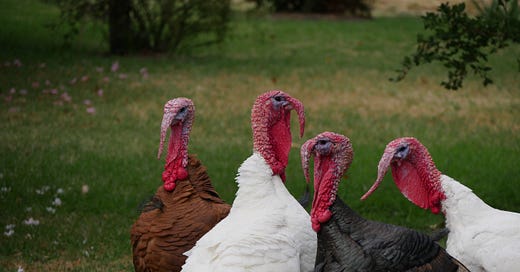We are entering the time of year that is the most stressful for my patients. Yes, next week is Thanksgiving…and with it will come a hurricane of too much food, too much drink, too much family, and a pile of expectations.
Consider some data1:
When surveyed about stress and the holidays, 44% of women said that their stress increased during this time of year (as opposed to 31% of men).
When asked about being able to “relax” (haha, what is that?!), just 27% of women said that the holidays were a time for relaxing. In contrast, 41% of men said they felt relaxed during the holidays.
In order to cope with stress, women most frequently turn to food for comfort (41%) and drinking as an escape (28%).
This data was collected in the early aughts. I’d venture to say that the burden on women has only increased since then. We now deal with not only a hyperconnected world flooded with Pinterest worthy Thanksgiving milieu’s but also one in which holidays take up more and more space (as Anne Helen Petersen …
Keep reading with a 7-day free trial
Subscribe to Real Self-Care to keep reading this post and get 7 days of free access to the full post archives.




